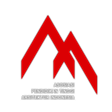Aplikasi Konsep Eco-Culture dalam Pengembangan Kampung Wisata Buah Baran Bercahaya
DOI:
https://doi.org/10.21776/ub.ruas.2022.020.01.11Keywords:
eco-culture, tourist village, organic farming village, organic farmingAbstract
The concept of eco-culture has a sustainability paradigm that emphasizes the harmony of humans and ecosystems. The target is the strengthening of local characters through the study of local genius, as well as the application of science and technological innovation in managing the potential for improving the quality of the environment and humans. Increasing the economy through tourism is its added value. Kampung Baran has a unique ethnographic and geographical setting inhabited mostly by low-income people. The potential that can be developed is agriculture which is now slowly starting to be abandoned. This study examines the application of the eco-culture concept which consists of an image of space, an image of building, and an idealized concept of place for the development of Kampung Baran. Through a descriptive-phenomenological study, the researcher explores the physical-spatial-architectural and economic-social-cultural phenomena of Kampung Baran as the object of study. Furthermore, the study of the application of the concept of eco-culture in the village of Baran was carried out through a SWOT analysis. The results obtained indicate that the concept of eco-culture can be applied in Kampung Baran by emphasizing on strengthening the noble values of the culture of agrarian communities in the expression of tangible and intangible heritage that is adaptive to cultural dynamics and strengthening and developing local potential.References
Capra, F. (1996). The web of life: A new synthesis of mind and matter. HarperCollins.
Capra, F. (2007). Sustainable living, ecological literacy, and the breath of life. Canadian Journal of Environmental Education (CJEE), 12(1), 9–18.
Gang, C. (2011). Sustainable Development of Eco-Cultural Tourism in Remote Regions: Lessons Learned from Southwest China. International Journal of Business Anthropology, 2(1).
Guy, S., & Farmer, G. (2012). Contested constructions: the competing logics of green buildings and ethics. In Ethics and the built environment (pp. 89–104). Routledge.
Indeswari, A., Antariksa, A., Pangarsa, G. W., & Wulandari, L. D. (2013). Pola Ruang Bersama pada Permukiman Madura Medalungan di Dusun Baran Randugading. RUAS (Review of Urbanism and Architectural Studies), 11(1), 37–46.
Kumar, R. (2018). Research methodology: A step-by-step guide for beginners. Sage.
Lombogia, C. A., Rengkung, J., & Wuisang, C. E. V. (2018). PUSAT KEBUDAYAAN JAWA-TONDANO DI MINAHASA. Eco-Culture Design. Jurnal Arsitektur DASENG, 7(2), 93–103.
Pangarsa, G. W., Titisari, E. Y., Ridjal, A. M., & Ernawati, J. (2012). Tipologi Nusantara Green Architecture Dalam Rangka Konservasi Dan Pengembangan Arsitektur Nusantara Bagi Perbaikan Kualitas Lingkungan Binaan. RUAS (Review of Urbanism and Architectural Studies), 10(2), 78–94.
Permana, A. Y. (2011). Penerapan Konsep Perancangan Smart Village Sebagai Local Genius Arsitektur Nusantara. Jurnal Arsitektur Komposisi, 9(1), 24–33.
Titisari, E. Y., Antariksa, A., Wulandari, L. D., & Surjono, S. (2018). Water Resource as Axis-Mundi: An Effort to Preserve Water Resource Sustainability. IOP Conference Series: Earth and Environmental Science, 213(1). https://doi.org/10.1088/1755-1315/213/1/012005
Titisari, E. Y., Rukmi, W. I., & Suryokusumo, B. (2004). Pergeseran Ruang Transisi Publik-Privat di Permukiman Madura Buring Malang. Laporan Penelitian, BPP FT Universitas Brawijaya.
Van der Ryn, S., & Cowan, S. (2013). Ecological design. Island press.
Downloads
Published
How to Cite
Issue
Section
License
Authors who publish with this journal agree to the following terms:
- Authors retain copyright and grant the journal right of first publication with the work simultaneously licensed under a Creative Commons Attribution License that allows others to share the work with an acknowledgement of the work's authorship and initial publication in this journal.
- Authors are able to enter into separate, additional contractual arrangements for the non-exclusive distribution of the journal's published version of the work (e.g., post it to an institutional repository or publish it in a book), with an acknowledgement of its initial publication in this journal.
- Authors are permitted and encouraged to post their work online (e.g., in institutional repositories or on their website) prior to and during the submission process, as it can lead to productive exchanges, as well as earlier and greater citation of published work (See The Effect of Open Access).












